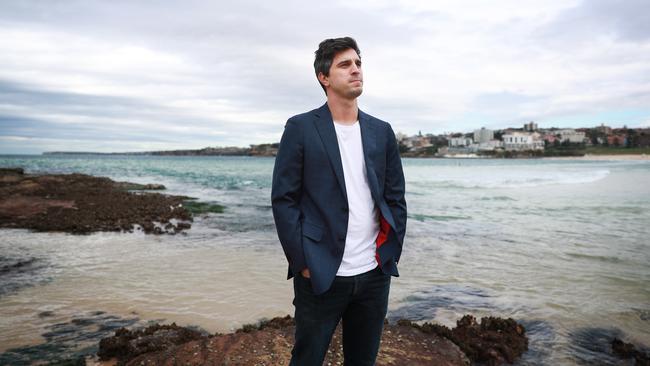Pandemic powering Afterpay’s ascension
Coronavirus has crushed businesses but for Afterpay, it’s been an extraordinary gift.

The coronavirus pandemic has crushed businesses but for Afterpay, darling of Australia’s fintech scene, it’s been an extraordinary gift, supercharging a shift to online, debit card-based buying that suited the buy now pay, later platform to a tee.
From a low of $8 in March, when it seemed like the economy would topple into the abyss, Afterpay’s share price soared above $52 on Friday, more than 30 per cent above the peak before the crisis, giving the company a market capitalisation of over $13bn — more than twice Qantas’s.
Thirty-year-old Nick Molnar, who co-founded Afterpay in 2014 with Anthony Eisen, puts the success down to a dawning realisation his business was set to reap a large COVID-19 dividend.
“The crisis has led to consumers being more responsible and retailers accelerating their digital strategy, which have been very positive for us,” he says.
“Debit cards were a millennial thing, but as they grow up and their incomes grow their buying habits are becoming the norm,” he explains, revealing that the share of Afterpay customers who made their repayments from a debit account jumped from 85 per cent to 90 per cent during the pandemic.
Downloads of the Afterpay app accelerated in April and May to levels 2.5 times a year go, including even faster rates of growth in the US, where Afterpay now has more customers than Australia.
More online shopping means more shoppers — including those in older, richer cohorts — are seeing Afterpay at the checkout, which allows them to pay off their purchases in four equal instalments, interest-free.
Securities firm Bell Potter upgraded its share-price forecast to $65 on Friday.
“Anthony and I made a rule from the start to never look at the share price,” Molnar says, speaking to The Australian at Bondi Beach, where he was mulling over whether to let his 600-odd staff work from home permanently, as tech giant Twitter recently did.
“They’re split down the middle; some can’t wait to get back, others love the flexibility,” he adds, pushing back against the idea globalisation is in retreat.
“The ability to work from home actually means there’s greater opportunity for people to work in all parts of the world. None of us are travelling any time soon,” the usually San Francisco-based entrepreneur says.
Afterpay’s rapid expansion into the US has attracted the attention of Chinese tech giant Tencent, which paid $300m for a 5 per cent of the business earlier this year. “The ability to have strategic conservations with them is very positive. You can talk about international expansion and compare numbers,” Molnar says.
“WeChat is fundamentally built on people spending their own money,” he says, referring to the popular payments platform launched by Tencent in 2011. “The fundamentals of what is happening in China is people have said we prefer to spend our own money,” he adds.
Molnar takes, unsurprisingly, a dim view of traditional banks, suggesting their incentives were “completely misaligned”.
“The banking industry has been challenged to come up with products that have good intentions 100 per of the time: if 100 per cent of people paid back their credit card on time the industry wouldn’t exist,” he says.
“I don’t think trust is built over a three-to-six month period; it’s built on how you behave the whole year, not just in moments when you’re seen to be doing the right thing,” he adds, referring to recent bank moves to defer loan repayments for customers.
Whatever the rivalry, banks have helped Afterpay, mailing out thousands of debit cards to customers who didn’t already have one, as Reserve Bank assistant governor Michelle Bullock pointed out this week.
“People who have recently obtained a debit card for the first time now have the ability to use a card at the point of sale as well as make online purchases,” she said. “The increased use of online shopping, either through necessity or preference during the ‘stay at home' period, seems likely to be a permanent shift,” she added.
Reluctant to be drawn on the latest “reform” debate, Molnar says cutting the company tax rate from 30 per cent to 25 per cent, a frequent demand from other Australian businesses, was not a priority.
“We’re a fast-growth business going global. Those aren’t the sort of moves that create systemic shifts for us, to be completely honest,” he says.
“We have an incredible opportunity to export innovation to world. It’s good to see the Australian government take a leadership position in relation to open banking,” he adds, although conceding its effectiveness will depend on the details.
- The author owns a small number of Afterpay shares.




To join the conversation, please log in. Don't have an account? Register
Join the conversation, you are commenting as Logout